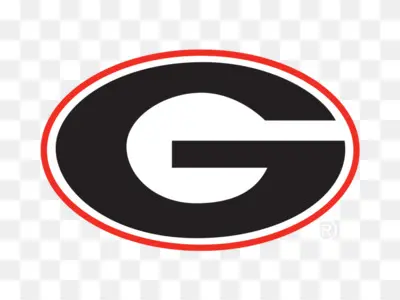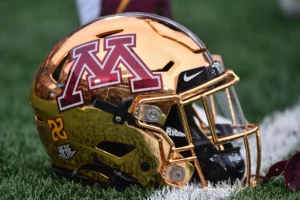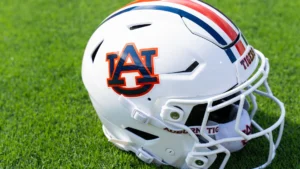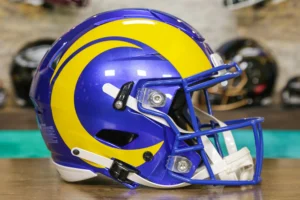
Michael Cunningham: One Weakness Could Prevent Georgia from Winning Title
As the Georgia Bulldogs embark on their quest for an unprecedented third consecutive national title, the expectations are sky-high. Under the guidance of head coach Kirby Smart, Georgia has transformed into a football juggernaut, churning out NFL talent at every turn and dominating the college football landscape. Yet, as they aim to solidify their dynasty, one glaring weakness could prove to be the Achilles’ heel that prevents them from securing another championship: the lack of a premier wide receiver.
The Machine That Kirby Built
Since taking over as head coach in 2016, Kirby Smart has built a program that is the envy of college football. Georgia has excelled in every phase of the game, producing top-tier talent at nearly every position. Defensively, the Bulldogs have been a powerhouse, sending players to the NFL in droves, particularly along the defensive line and secondary. On the offensive side, Georgia has consistently developed standout offensive linemen, and their running backs have been among the best in the nation, even in an era where NFL teams increasingly devalue the position.
This assembly line of talent has resulted in Georgia’s recent dominance, with the Bulldogs capturing back-to-back national titles in 2021 and 2022. However, amidst all this success, there remains one position that has not produced an elite prospect: wide receiver.
The Outlier: Georgia’s Wide Receiver Drought
Despite Georgia’s overall success, the program has notably lacked a game-changing wide receiver. In Kirby Smart’s eight seasons at the helm, not a single wide receiver has been drafted in the first round of the NFL Draft. In fact, only one wide receiver, Ladd McConkey in 2022, has even been voted All-SEC during Smart’s tenure.
This deficiency should have been a significant obstacle to Georgia’s championship aspirations, as the modern college football landscape heavily favors teams with elite pass-catchers. Nearly every national champion in the College Football Playoff (CFP) era has boasted at least one first-round NFL Draft pick at wide receiver, with these players often being the difference-makers in high-stakes games.
Georgia, however, found a way to defy this trend, thanks in large part to a player who wasn’t even a wide receiver: tight end Brock Bowers.
Brock Bowers: Georgia’s Loophole
Brock Bowers was not your typical tight end. During his three seasons in Athens, Bowers became Georgia’s most reliable and explosive offensive weapon, a rare blend of size, speed, and agility that allowed him to turn short passes into game-changing plays. Bowers led the Bulldogs in receptions of 20-plus and 30-plus yards each season, providing the big-play ability that Georgia’s wide receivers lacked.
Bowers was so integral to Georgia’s offense that his presence effectively masked the team’s deficiency at wide receiver. His ability to stretch the field and create mismatches against opposing defenses gave Georgia a unique advantage, allowing them to win back-to-back national titles without the need for a star wide receiver.
However, Bowers is no longer in Athens. After declaring for the NFL Draft, he was selected by the Las Vegas Raiders, leaving a significant void in Georgia’s offense. With Bowers gone, the question now looms: who will step up to make the big plays that are essential for another championship run?

The Current State of Georgia’s Receiving Corps
Georgia’s current receiving corps is talented but unproven at the highest level. Pro Football Focus ranks the Bulldogs’ receiving group as the fourth-best in the country, but much of that ranking is due to the presence of tight ends Ben Yurosek and Oscar Delp. While both players are capable, neither possesses the same game-breaking ability that Bowers brought to the field.
Yurosek, who transferred from Stanford, has accumulated 1,338 receiving yards over three seasons, but he is more of a steady target than an explosive playmaker. Delp, a promising young talent, was open on 99.6% of his targets last season, but he has yet to prove himself as a go-to option in critical situations.
Georgia does have some intriguing options at wide receiver. Seniors Dominic Lovett and Dillon Bell are the most likely candidates to take on a larger role, and they combined for 11 catches of 20-plus yards in 2023. However, neither has shown the consistency or big-play ability that would elevate them to the level of an elite receiver.
The Bulldogs also brought in three transfer wide receivers and two freshmen to bolster the position, but it remains to be seen how quickly they can develop chemistry with quarterback Carson Beck. Smart himself has acknowledged the challenge of balancing the need to develop depth at the position with the urgency of building rapport between Beck and his top targets.
The National Landscape: Georgia’s Competition
As Georgia works to address its receiving concerns, their competition is not standing still. The Bulldogs’ peers among the top national title contenders boast elite pass-catching talent that could be the difference in a close game. Ohio State, for instance, may have lost Marvin Harrison Jr. to the NFL Draft, but they still have another top wide receiver prospect in Emeka Egbuka. Texas has reloaded with former Alabama receiver Isaiah Bond, and other top programs like Oregon and Ole Miss also feature wide receivers with first-round potential.
Historically, nearly every team that has played in the CFP title game has had at least one wide receiver who would go on to become a first-round NFL Draft pick. Georgia has been one of the few exceptions, relying instead on their tight ends and a dominant defense. But without Bowers, the margin for error is thinner, and the lack of an elite wide receiver could prove costly.
Conclusion: The Road Ahead for Georgia
As the 2024 season unfolds, all eyes will be on Georgia as they attempt to make history with a third consecutive national title. The Bulldogs have all the pieces to compete at the highest level: a strong defense, a talented offensive line, and a potential Heisman Trophy candidate in Carson Beck. But football is a game of inches, and in the ultra-competitive environment of the CFP, one weakness can make all the difference.
Without Brock Bowers, Georgia’s wide receiver corps will need to step up and fill the void. If they can’t, the Bulldogs’ dream of a three-peat could be derailed by the very weakness that their star tight end once covered so well. In a season where the stakes couldn’t be higher, the pressure is on for Georgia to prove that they can overcome this challenge and continue their reign at the top of college football.





